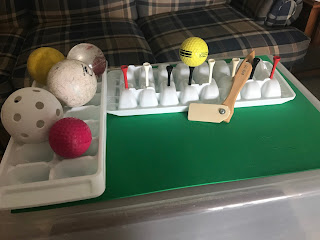Learning To Think Like an OT
I have been in OT school for four months and I find it amazing how well my OT skills are beginning to form. This morning I was in the living room with my family and a little boy came on the TV who did not have fully developed arms. He had learned how to play basketball and was really good at it, even though he was much more limited than his teammates. The interviewer asked the boy why he would not just play soccer instead, because that would make a lot more sense. The light in the boys eyes dropped and he looked at the interviewer and told him that he loved basketball.
I was immediately baffled by the fact that the interviewer would even say that to a child. Why should he have to play soccer if that's not his favorite sport? What is so wrong with him adapting to play basketball? While I was expressing my thoughts and concern about this interview my dad looked at me and asked why it was such a big deal, because it does make sense for him to play soccer instead.
I explained to my father that this boy was more than his Amelia. I asked him as parent, if one of his sons wanted to play basketball, would you put him in soccer instead, just because he might be better at it? Of course not, no parents would do that to a "normal kid" so why do that to a child with a disability. If he loves basketball, he should be able to play basketball, just like any other kid would.
I have learned through my short time in OT school that you always look at the person first, then the disability. This is an important skill I have learned and I will carry with me for the rest of my life.
I was immediately baffled by the fact that the interviewer would even say that to a child. Why should he have to play soccer if that's not his favorite sport? What is so wrong with him adapting to play basketball? While I was expressing my thoughts and concern about this interview my dad looked at me and asked why it was such a big deal, because it does make sense for him to play soccer instead.
I explained to my father that this boy was more than his Amelia. I asked him as parent, if one of his sons wanted to play basketball, would you put him in soccer instead, just because he might be better at it? Of course not, no parents would do that to a "normal kid" so why do that to a child with a disability. If he loves basketball, he should be able to play basketball, just like any other kid would.
I have learned through my short time in OT school that you always look at the person first, then the disability. This is an important skill I have learned and I will carry with me for the rest of my life.

I agree! Anything a child wants to do should be supported by his parents, friends, and family. I am so glad to see a family who supported their child rather than make them conform.
ReplyDelete